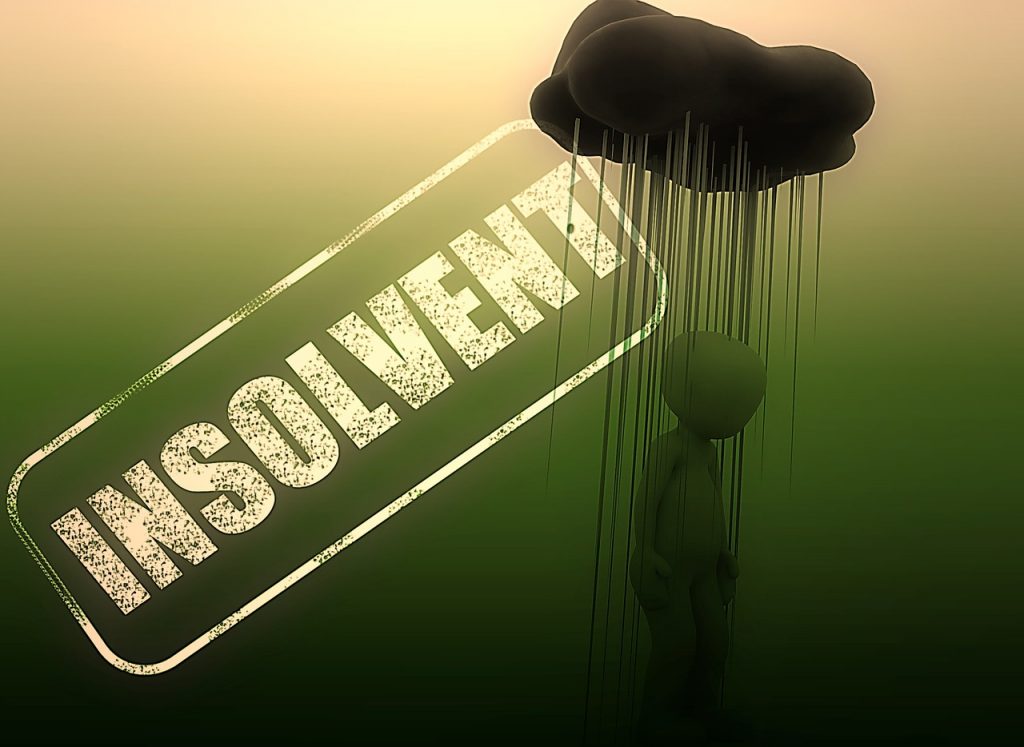Published on: 14th October 2025
Authored by: Ekene Evans Ahmed
Ambrose Alli University
Court: Supreme Court of Nigeria.
Bench: Hon. Justices John Inyang Okoro, Habeeb Adewale Oluwamuyiwa Abiru, Adamu Jauro, Moore Aseimo Abraham Adumein, Helen Moronkeji Ogunwumiju. (Abiru JSC delivered the lead judgment; Ogunwumiju JSC dissented.)
Date of Judgment: 24 January 2025.
Relevant Statutes/Key Provisions: Section 84 of the Sheriffs and Civil Process Act (Cap. S6, LFN 2004), section 1, 6, 33, and 287 of the 1999 Constitution of the Federal Republic of Nigeria, section 124 of the Evidence Act 2011, section 15 of the Court of Appeal Act 2004, and Order 20 Rule 11, Court of Appeal Rules.
Brief Facts:
In October 2018 the Federal High Court, Abuja, awarded ₦50,000,000 to Inalegwu Frankline Ochife (1st Respondent) against the Inspector General of Police and two other police officers (2nd–4th Respondents). Ochife then sought to enforce this judgment by garnishee proceedings targeting funds held in the Federal Government’s Treasury Single Account (TSA) at the Central Bank of Nigeria (CBN). He asserted that the police officers (judgment debtors) maintained TSA accounts at CBN with sufficient balance to satisfy the judgment. On 10 December 2018 the trial court granted an order nisi, directing CBN to show cause why it should not attach N50m from the debtors’ supposed accounts.
CBN filed an affidavit on 7 January 2019, wherein it denied that it held any accounts in the names of the police officers. When the case came up on 11 January, CBN was unrepresented, and the court held that the affidavit was filed out of time. On 21 January 2019 it made the garnishee order absolute, effectively directing CBN to pay the N50m to the court registry. CBN appealed.
The Court of Appeal (Abuja) agreed that the affidavit was not late, but it exercised its statutory power to re-hear the matter (s.15, CA Act). The Court of Appeal rejected CBN’s denial of accounts and took judicial notice (under s.124 EA) that, by TSA policy, all Government Ministries, Departments and Agencies (MDAs) keep accounts at CBN. It treated the police officers as effectively MDAs and concluded they must have CBN accounts. The Court of Appeal therefore dismissed the appeal of CBN, leaving the garnishee order intact.
CBN then appealed to the Supreme Court. Its appeal challenged both the factual assumption of the Court of Appeal and the jurisdictional validity of the garnishee proceedings (particularly the question of whether AGF consent had been obtained as required by Section 84 SCPA).
Issues:
- Whether a garnishee (like CBN) may object to jurisdiction for want of AGF consent when the judgment debtor does not contest the underlying judgment.
- Whether the garnishee order absolute (made on 21 January 2019) was void for failure to obtain the Attorney-General of the Federation’s consent, which Section 84 requires as a condition precedent to garnishee proceedings.
- Whether the Court of Appeal properly invoked its power under Section 15 of the Court of Appeal Act (and Order 20 R.11 of the Rules) to rehear the garnishee matter.
- Whether the Court of Appeal was justified in relying on Section 124 of the Evidence Act 2011 to assume that the police respondents (though actually only individuals) maintained government TSA accounts with CBN.
Judgment:
By a 4:1 majority, the Supreme Court allowed the appeal. It vacated the garnishee order and dismissed the proceedings, discharging CBN from liability. The Court found the lower courts’ findings on the accounts to be perverse and the legal issue of consent to have been raised too late. Chiefly, the lead judgment of Abiru JSC (with Okoro, Jauro, Adumein JJSC concurring) held that:
The police officers (IGP, CP FCT, SARS officer) are not Ministries or Agencies. They are employees whose salary funds are held by the police institutions (Nigeria Police Force and Police Service Commission), not in personal accounts at CBN. Thus, the essential premise required of the garnishee order turned out false. Abiru JSC emphasized that the Court of Appeal erred in treating the officers as MDAs with TSA accounts. In fact, CBN’s affidavit denial should not have been disregarded; under proper evidence evaluation, the Court should have found CBN’s denial credible. As Abiru JSC noted, the officers “are not MDAs to qualify” for individual TSA accounts.
The majority held that Section 84’s consent requirement is a procedural condition precedent to jurisdiction. However, since CBN contested the matter on the merits without objecting, it effectively waived any complaint. Citing authority, the Court reiterated that failure to comply with a condition precedent like AGF fiat is a defect of procedural jurisdiction. But if a party contests without raising it, that irregularity is deemed waived. Accordingly, Justice Abiru ruled that CBN could not belatedly invoke Section 84 on appeal. This is because the issue had not been raised in the trial court, the Court of Appeal had no jurisdiction to decide on it at all. He struck out the consent issues raised by CBN in the appeal, and held that to that extent the lower court’s decision was a nullity.
The Court acknowledged it was raising the AGF-consent issue suo motu (on its own), and it was because it had implicated the substantive jurisdiction of the Court of Appeal. It recognized that while a procedural defect would normally be waived, issues of substantive jurisdiction can be raised at any time. However, having done so, it concluded that CBN had indeed submitted to jurisdiction by contesting the merits, so the defect could not invalidate the appeal.
Justice Helen Ogunwumiju JSC dissented in part. She agreed that the appeal should be partly allowed on factual grounds (i.e. CBN’s denial of accounts was well-founded) and that the garnishee order was improperly made. However, she diverged sharply on Section 84. Dissenting, she held that the failure to obtain the AGF’s consent went to the core of jurisdiction and that CBN had not waived the issue.
Most importantly, Ogunwumiju JSC declared Section 84 of the SCPA unconstitutional. Ogunwumiju JSC reasoned that Section 84, being an ordinary statute, could not validly undermine the Supreme Court’s command in Section 287 of the Constitution that all court judgments must be enforced by all authorities. She stated that Section 84 sought to give the Attorney-General a “whim and caprice” power to block enforcement. In her view, “it is incongruous and ludicrous that the monetary judgments of the courts… must be subject to the AG or AGF”. She lamented that subjecting a final Supreme Court judgment to executive fiat would make the judiciary a “toothless bulldog”.
Therefore, Ogunwumiju JSC held that Section 84, as it stands, is inconsistent with the supremacy of the Constitution (s.1), the judicial power of the courts (s.6), the duty to enforce judgments (s.287), and the right to access courts (s.33). Had this Court been required to rule on the point (which the majority avoided on waiver grounds), she concluded that Section 84 would be void for repugnant inconsistency with the 1999 Constitution.
Ratio Decidendi:
Section 84’s consent requirement is a condition precedent (procedural) rather than substantive law. It held that where a garnishee disputes the liability or effectiveness of the proceeding, the court must evaluate the affidavits on the merits. Here, CBN had produced a showing, but the lower courts perverted the evidence by applying Section 124 automatically. Essentially, because CBN contested the proceedings without ever raising the lack of consent, it waived any complaint under Section 84. The principle is that a procedural irregularity not objected to at trial is foreclosed on appeal. Thus, the majority’s key ratio is: failure to obtain AGF consent is a procedural defect which (if not timely raised) cannot invalidate an otherwise-final garnishee order. The Court did not (and did not need to) strike down Section 84; it simply held that CBN could not belatedly claim lack of jurisdiction.
Another determinative point was that proof of MDAs’ TSA accounts cannot be automatically imputed to individual officers. The Supreme Court reaffirmed that if a garnishee disputes liability, the lower court must compare the contentions of each side. The finding of the Court of Appeal was perverse: the judgment debtors (police officers) were not entitled to be treated as MDAs under the TSA. This determination based on facts supports the setting aside of the garnishee order. However, these findings of facts serve as subsidiary reasons rather than the abstract legal rule.
Implicitly, the Court reiterated that it can raise jurisdictional issues on its own motion (especially matters touching the court’s substantive jurisdiction). This enabled the Court to consider Section 84 even though neither party prominently litigated it.
Obiter Dicta:
The majority opinion contained little beyond the ratio, and no significant obiter was recorded by the other concurring Justices. Justice Ogunwumiju’s extensive commentary on constitutional principles, however, amounts to persuasive dicta (albeit in dissent). For example, she traced the colonial origin of Section 84 and noted it was only grafted into the Nigerian constitution by a 1993 military decree. She stressed that Section 84 had no place in the 1999 Constitution, suggesting in obiter that the provision should be “buried”. These observations – on history, public policy, and the need for reform – go beyond the majority’s holding. The majority explicitly declined to rule on the constitutionality of Section 84, so Ogunwumiju’s remarks on supremacy, separation of powers, and executive overreach are not binding. Nevertheless, they provide an important obiter critique: “monetary judgments” should not be subject to “whim and caprice” of the Attorney-General. In the future, lower courts may find her insistence on enforcing judgments without further executive fiat to be compelling, even though it is not the controlling law in this case.
Final Decision:
The Supreme Court allowed the appellant’s appeal. The judgment of the Court of Appeal, dated Dec. 4, 2020, was set aside. The garnishee proceedings were dismissed, and CBN was discharged from the liability of a garnishee. By order of the Court, each party was to bear it’s own cost of the appeal. (By contrast, Section 84 of the Sheriffs and Civil Process Act remains formally on the books, since the majority declined to invalidate it.)




